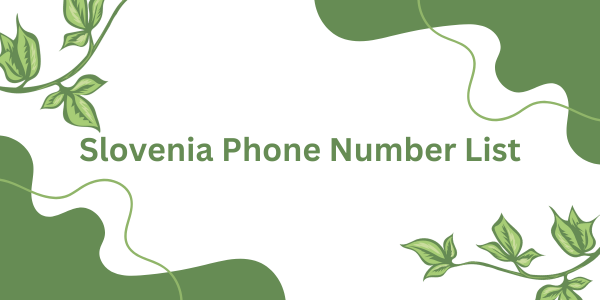|
|
Music plays a vital role in Slovenian culture, serving as a powerful expression of identity, tradition, and community. Rooted in its rich history and diverse geographical influences, Slovenian music reflects the intertwining of European and regional traditions.
One significant aspect of Slovenian musical heritage is folk music, characterized by Slovenia Phone Number List distinctive melodies, traditional instruments, and regional diversity. Traditional Slovenian folk music features instruments such as the accordion, fujara (a type of flute), and the cimbalom, and it often accompanies dances and communal celebrations. Songs and dances vary across regions like Primorska, Pomurje, and Gorenjska, reflecting the nation's geographical and cultural diversity.
Choral singing is another cornerstone of Slovenian musical traditions. This reflects a communal and participatory approach to music, with groups forming to perform folk songs and traditional hymns. One prominent example is the Slovenian choir movement, a vital element of cultural and social life. The preservation of this tradition highlights the importance of music in maintaining Slovenian identity.
In addition to traditional folk and choral music, classical and contemporary music has flourished in Slovenia. Composers such as Herman Potočnik, Jakob Petelin, and Silvio Foretič have contributed to both national and international classical music. Slovenia's classical musicians are celebrated for their contribution to symphonies, operas, and chamber music. Contemporary music scenes in Slovenia also include popular genres like rock, pop, and electronic music, often intertwined with local influences.

National and international music festivals, such as the Ljubljana Festival and the Triglav Film Festival, demonstrate the role of music in modern Slovenian society. These events foster collaboration and cultural exchange, allowing Slovenian musicians and composers to showcase their talents on global platforms.
Moreover, music serves a social function in Slovenia by uniting people during national holidays, religious events, and other ceremonies. Folk dances and group performances connect generations and communities, promoting cultural cohesion. Events like traditional dances during Slovenski pust (Carnival) and other local festivals highlight music's role in Slovenian traditions.
In conclusion, music in Slovenian culture bridges the old and new, the traditional and modern. It reinforces national identity, fosters communal bonds, and provides a creative space for expression and storytelling. Slovenian music—both traditional and modern—remains a key element of the nation’s cultural vibrancy and shared heritage.
|
|